From athlete to broadcast journalist and, finally, to entrepreneur and yogi, Mary Strong, 39, has done just about everything. Besides showcasing a dizzying spectrum of skills (with surprising authenticity), Mary’s career path has shown how zig-zagging in a number of directions can, in fact, be the most fruitful route.
Following her start in news and reporting, Mary realized that, without sports in her life, she wasn’t as happy as she could be. Chasing that intuition brought Mary back to volleyball and a new challenge working as a sports broadcaster—a field where, at the time, women were scarce. As a pro athlete and sports broadcaster, Mary brought a unique credibility to her reporting. But more importantly, Mary created an example for success in sports broadcasting based more on what a person knew then what they were wearing (insert our enthusiastic applause here!).
Victory in just one field didn’t encourage Mary to call it a day, though. Rather, she seemed more compelled then ever to satisfy her desire for entrepreneurship. Inspired by a lifelong practice in yoga and a desire to share that peace with others, Mary opened her eco-friendly yoga studio, The Green Yogi. Multi-tasking, multi-passionate ladies, listen up—This is one Contessa conversation you won’t want to miss.
Her Starting Point
Many people find the transition between college and “real life” a bit daunting. Can you tell us a little bit about your journey between the two? What was your first job post-college?
After I graduated from Loyola Marymount University, I got a job working at a Diane’s Bikini Shop in Manhattan Beach, CA. In my off-hours, I sent out broadcasting demo reels. I remember telling my coworkers that I was going to be a broadcast journalist one day and they would look at me like I was crazy! Four months went by and I hadn’t heard back from anyone regarding my demos. I felt totally deflated and questioned whether I should continue pursuing a career in journalism. As fate would have it, I went home and there was a message on my answering machine from a news director in Missouri. I couldn’t believe it! I took the job and moved a few weeks later to become a reporter for the NBC affiliate in Kirksville.
Tell us how you came to pursue sports broadcasting.
I was a news anchor/reporter for about twelve years before I went into sports. In September 2011, I covered 9-11. It took a major toll on me. I realized I didn’t want to report on negative news anymore. I am genuinely a happy person and it finally started to wear on me. I called my agent and told her I wanted a change. I had been an athlete all my life and felt sports broadcasting could help me combine both worlds.
How do you think starting your career as a news journalist helped you eventually make your way to reporting from the sidelines? What advice would you give to aspiring sports broadcasters on where to start their careers?
I got a call from my agent letting me know that the head of Fox Sports Net, Steve Tello, wanted to meet with me. At the time, there were a lot of former playboy bunnies getting into sports broadcasting and I was like, “What does he want with me?” During our first meeting he told me he liked the fact that I had a news background and could lend a sense of credibility to the female talent on his team. The next thing I knew, he handed me a stack of scripts, sat me on the set and I auditioned that day. It felt very natural.
Steve is the reason I have a career in sports. He gave me a shot and inspired me to pursue a sports career. There was a big learning curve. I had to know the ins-and-outs of every sport. Growing up with sports really helped. I also was one of a handful of women in sports at the time, so there was a lot of pressure to do things right.
After I moved to LA, I also began training for the AVP volleyball tour. It had always been a dream, but I chose to pursue my career in broadcasting straight out of college instead of going pro. The AVP hired me as their sideline reporter shortly after I got the job with Fox. I would play a game and then run to the shower and get ready for the broadcast.
How did you learn the ins and outs of sports broadcasting? What types of skills are essential for a career in this field?
I don’t believe a degree or a class can prepare you for what it’s like to be a real journalist. School teaches you how to learn and meet deadlines; everything else is learned through hands-on experience. I majored in sociology. It taught me how to observe and report what I see. It was the best training I could have had for journalism. It doesn’t matter what you major in. In fact, if you want to be a journalist, it’s better not to major in journalism. Major in an area you can use as a reference, something that will give your stories more depth and give you credibility.
Journalism in general is all about being curious. If you are genuinely interested in something, it will come across in your reporting. I am genuinely interested in sports, the strength and dedication it takes to be a great athlete or coach and win games. I am very interested in the human side of sports. The faces behind the wins and losses. I want to tell their stories.
Her Big Break
Tell us about the daily job and responsibilities of a sports broadcaster.
I do a lot of research. At the beginning of my day, I spend a couple hours on the Internet catching up on the latest sports news and planning how I am going to talk about it. When I first started in broadcasting, I wrote, produced, shot and edited all my stories and broadcasts. Now that I’m in LA, we have producers, photographers and editors. Some consider it a luxury, but I actually miss being more hands-on.
Today, I have a producer who stacks the show and decides what stories we are going to do. I work with our writers to create content. Sometimes I do as many as ten updates a night. I have been on an anchor desk for almost seventeen years, so that part comes easily. The camera has become a close friend. It’s like talking with a good buddy about the day in sports. I never think about the millions of people watching. I have a big fear of speaking in front of people! Luckily the camera doesn’t have eyes.
Sports broadcasting is a very competitive industry. How have you differentiated yourself from other sportscasters?
When I first started, I was one of a handful of women in sports. Now there are quite a few of us. Blazing a trail for women in sports wasn’t easy. The first time I did sideline for college football, I got slammed in the papers the next day for wearing a leather jacket and my hair in a ponytail. The reporter called me unprofessional. I probably shouldn’t have done this, but I wrote him an email and suggested he consider working for Cosmopolitan Magazine if he wanted to be a fashion reporter. The only thing I cared about was whether or not I did a great job reporting on the game. And I did. It was tough to prove myself as a real sports journalist when the networks viewed female reporters as sideline eye candy for their male viewers. It was a tough line to walk to stay credible among the demand for attractive reporting.
What is your favorite part of sports broadcasting? What is the most challenging? Any parts you wish would change in the industry?
I like working with the athletes. I can relate to them. I played Division I volleyball in college and professionally. I know what they are going through on many levels and where their head is. It’s a different mindset and it’s fascinating to me.
I think the most challenging thing about my job is maintaining my femininity and still being part of the boys club. Sometimes when I put on my suit, it’s like putting on armor. It’s my protection from the intensely masculine sports environment. When I get home, the armor comes off and I can be vulnerable and feminine again.
On top of your job, you’re also the owner of The Green Yogi, an eco-conscious power yoga studio. How do you find balance? If we had the chance to peek at your schedule, what would an average day look like?
It’s tough. I wake up and see a list a mile long and wonder how I am going to get everything done. It’s a lot of time management. I run the yoga studio, teach yoga and juggle my broadcasting career on the side. I wear a lot of hats, but it keeps life fun and interesting. I love learning new things and I love a challenge, so it all works. I try not to do anything that doesn’t make me happy.
Owning a business is one of the most difficult things I’ve ever done. It’s also the most rewarding. I have learned so much from my team. I manage about twenty-five people and every day I ask myself, “How can inspire them to be better?” I think that’s why the business has been so successful. I put a big emphasis on team, and I try to lead by example. I am never complacent and I expect the same thing from everyone I work with. I think that’s the athlete in me. I always want to improve.
The studio has been a source of joy for so many people in our community from the day we opened, and I want to continue to have a positive impact on everyone who walks through our doors. If people leave feeling good, they will be good to others. It creates a domino effect. It makes all the hours I put in worth it. The studio has made me realize that being of service to others is my calling. It’s when I feel the most authentic.
Tell us about the decision to open The Green Yogi. Where did it come from, and have you always had an entrepreneurial spirit?
When I was a little girl, I had four businesses: a lemonade stand, a neighborhood car wash and a house cleaning and baby-sitting business. I loved the financial independence it gave me, even at a young age. I wanted to own a business so I could help people. I thought about that throughout my broadcasting career, but didn’t know how to act on it.
I did yoga in college to help my knee and hip injuries from volleyball. I continued to teach yoga throughout my broadcasting career to supplement my income, but never considered it to be more than just a passion.
About five years ago, I woke up early one morning, troubled by the burning desire to know what was next. I went down to the beach, sat in front of the ocean and closed my eyes. My thoughts went away and I experienced the most peaceful feeling. I had tried to meditate for years, but could never clear my mind. I woke up later that night with the idea for The Green Yogi.
A year later, I opened my studio in Manhattan Beach, CA. Since the day we opened, it’s been a success and, when I look back, I realize I had been looking for the answers to what was next on the outside, but in reality, the answers were inside me—I just needed to quiet my mind enough to hear and see them. Owning The Green Yogi feels so right. There is nothing better than working for yourself and helping others in the process!
Her Perspective
Did being a woman in sports broadcasting affect your career path at all? What advice would you give to women journalists hoping to pursue sports broadcasting?
Deciding to go from news to sports definitely affected my career. I was constantly pushed to dress more provocatively, wear hair extensions, more make-up and sex it up. I feel like that damaged my credibility in the long run.
The best advice I could give someone pursuing a sports broadcasting career, or any career for that matter, is to love what you do. If you love sports, telling stories and you’re good at it...pursue it! Intern at a sports network, put a tape together and start writing stories. If you are passionate about what you are doing, you will be successful.
I’ve had people claim their dream is to become a sports broadcaster. When I tell them they have to move to a small market to get experience and make $15,000 a year, they say forget it! I know they really don’t want it as much as they say they do. Nothing that’s ever worth it comes easily.
Where do you hope your career will take you next?
I have found what I’m looking for and I want to enjoy it. I want to teach good yoga and continue to bring yoga to as many people as possible.
A lot of people hear the word yoga and think it’s a hippy thing. It’s not. We have a lot of athletes and business professionals who practice with us. It gives them a great workout, but more importantly, it calms their mind. With a calm and balanced mind, you can make better decisions, and have better relationships. I want to give that gift to as many people as possible.
We were getting requests for more classes so we recently added an online studio and another physical location in Berkeley, California. I'm excited about our growth and hope to bring yoga to as many people as possible.
What advice would you give to aspiring entrepreneurs?
If you want to do something, research the heck out of it! I knew I was going to open the studio, but I just didn’t know how. I had never run a business, let alone a yoga business.
So I went to San Francisco and set up meetings with the top studio owners. I figured they would be more forthcoming if they knew I wasn’t a direct competitor. I used my background as a journalist to interview them and learned everything I could about how to run a studio. I also found a mentor who I could call periodically if I had questions.
Find a mentor and do your homework before you dive in. It will save you a lot of headaches. I really believe there is no such thing as failure. You will either succeed or learn.
You May Also Like
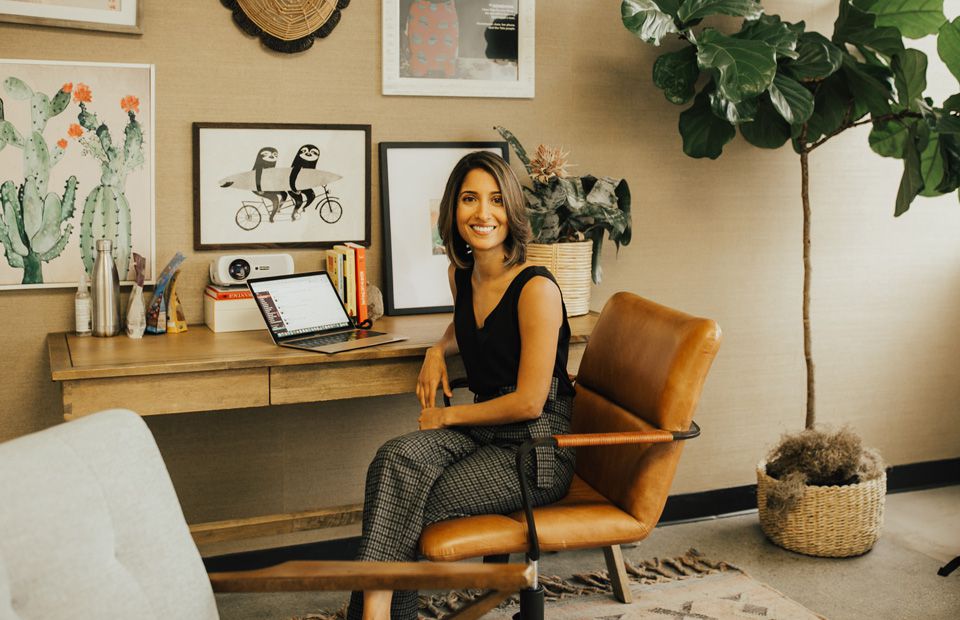
Technology
A Tech Founder on Why Being an Outsider Is a Strength
"I actually think most successful founders are rebels, of a sort. We’re trying to do new things and take on entrenched systems or ways of thinking. What makes me and our company different is that we’re outsiders."
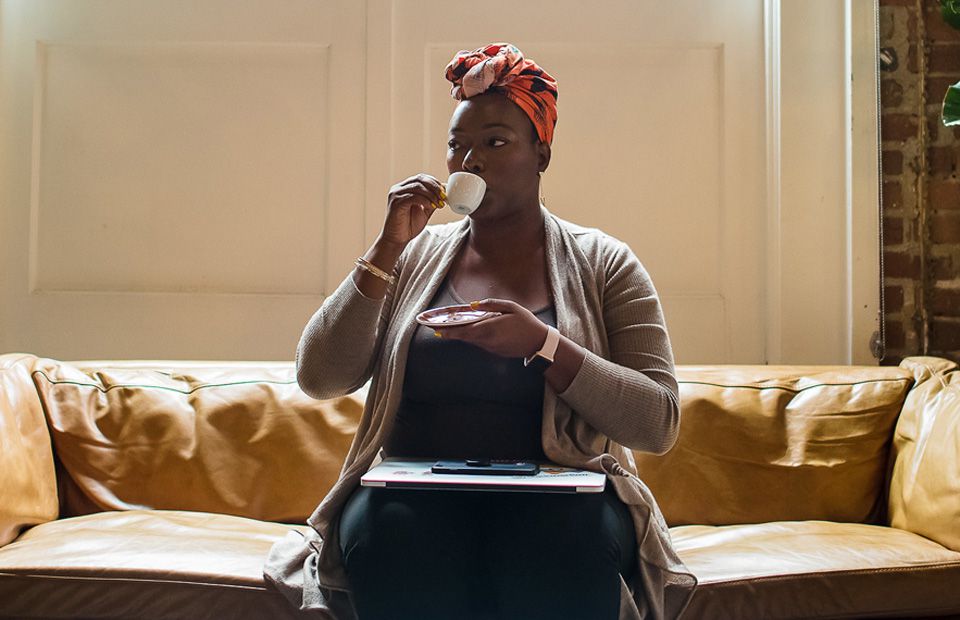
Technology
Omoju Miller—Tech Veteran, Leader, and Volunteer Advisor to the Obama Administration—on The Crucial Role of Creativity in the Tech Industry
"If you are in an environment where you feel marginalized, leave. Don’t try to change it. Go and look for a place that sees you and lets you be you."
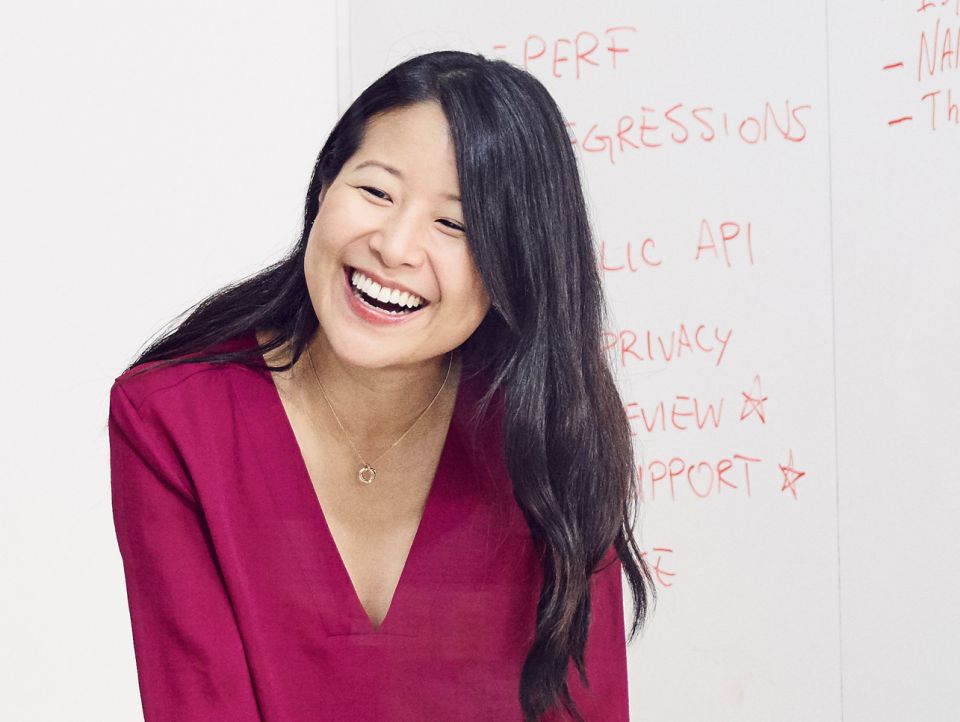
Technology
Sharing Stories as a Software Engineer
We sat down with Apple software engineer Emilie to learn about her day-to-day working at Apple along with what it takes to run the perfect meeting and her favorite ways to unwind.
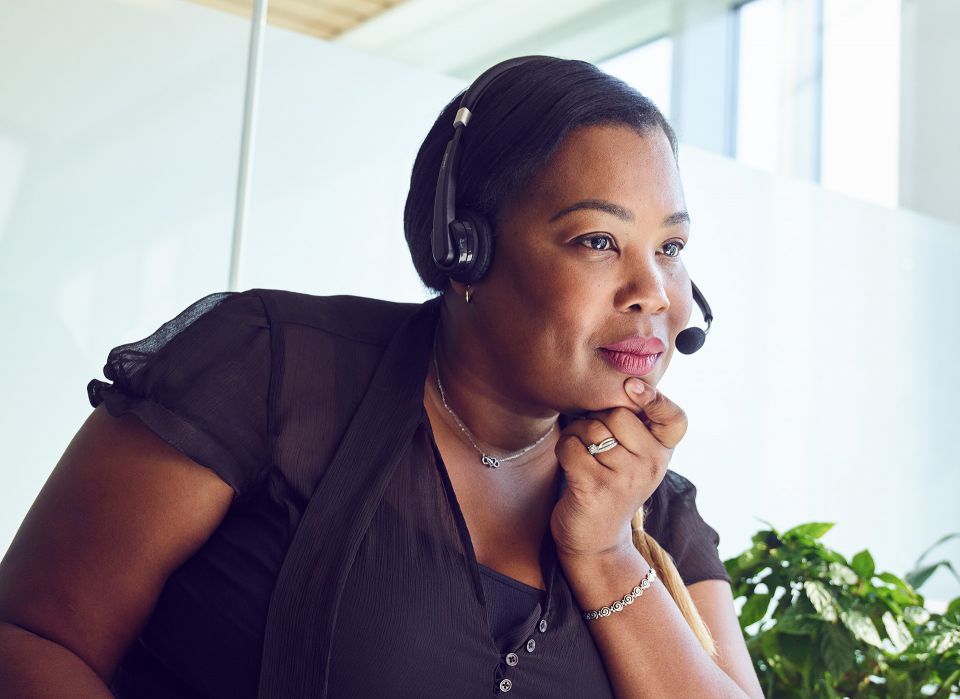
Technology
Creating Impact with Apple
We sat down with Apple's Senior Developer Partner Relations Advisor, Cris, to learn about what it takes to create a lasting impact within a large company. She shares a typical day in the life, her favorite book recommendations, and her top four tips to running a meeting.
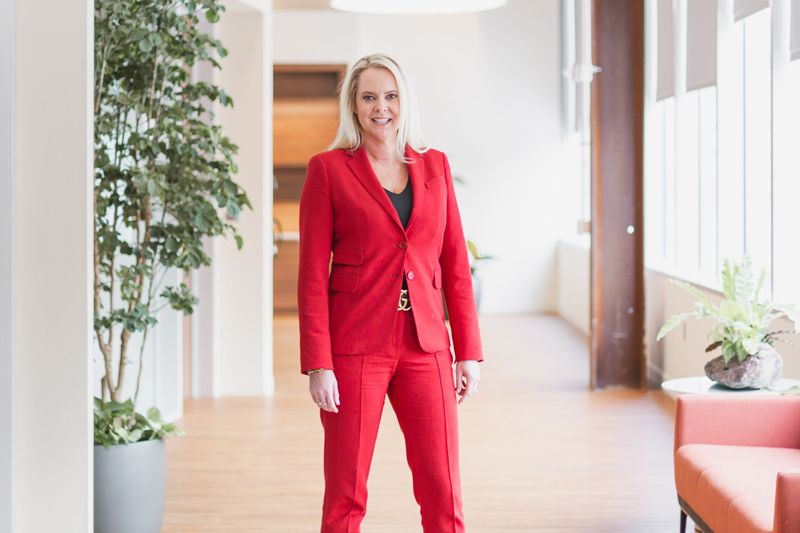
Technology
Salesforce’s Senior Vice President of Sales on Unconscious Bias, Failure, and Innovative Leadership
"Do not be afraid to fail, just bring your best self to the table."
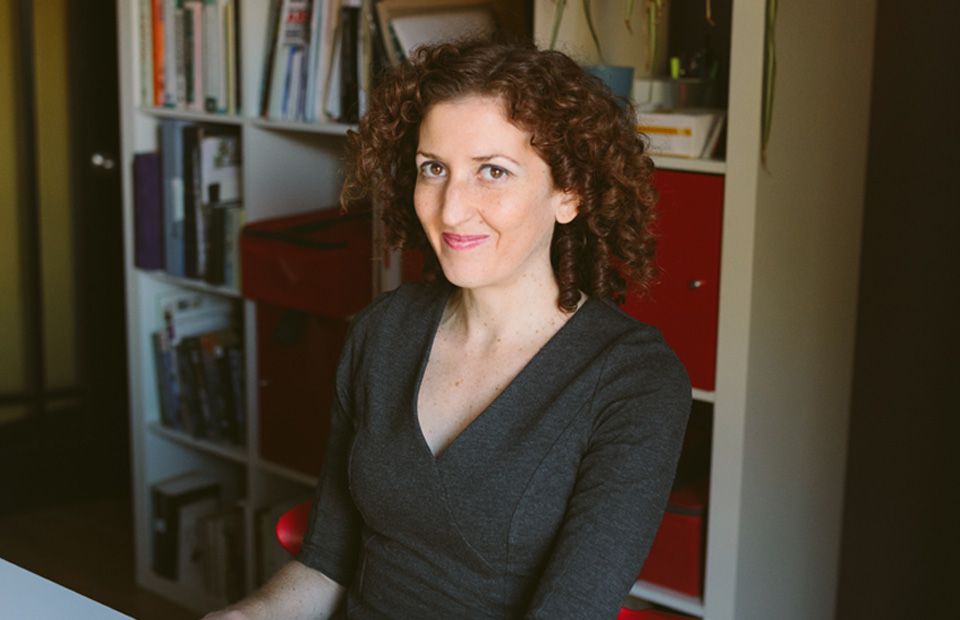
Technology
A Director of Engineering on Tech + Leadership
"I don’t believe in 'having it all'. If you spend more time on one thing, then you spend less time on another thing. All we can do is make choices on how to spend our time."
Get the Best Career Advice Delivered To Your Inbox
Join our newsletter to stay in the loop.
